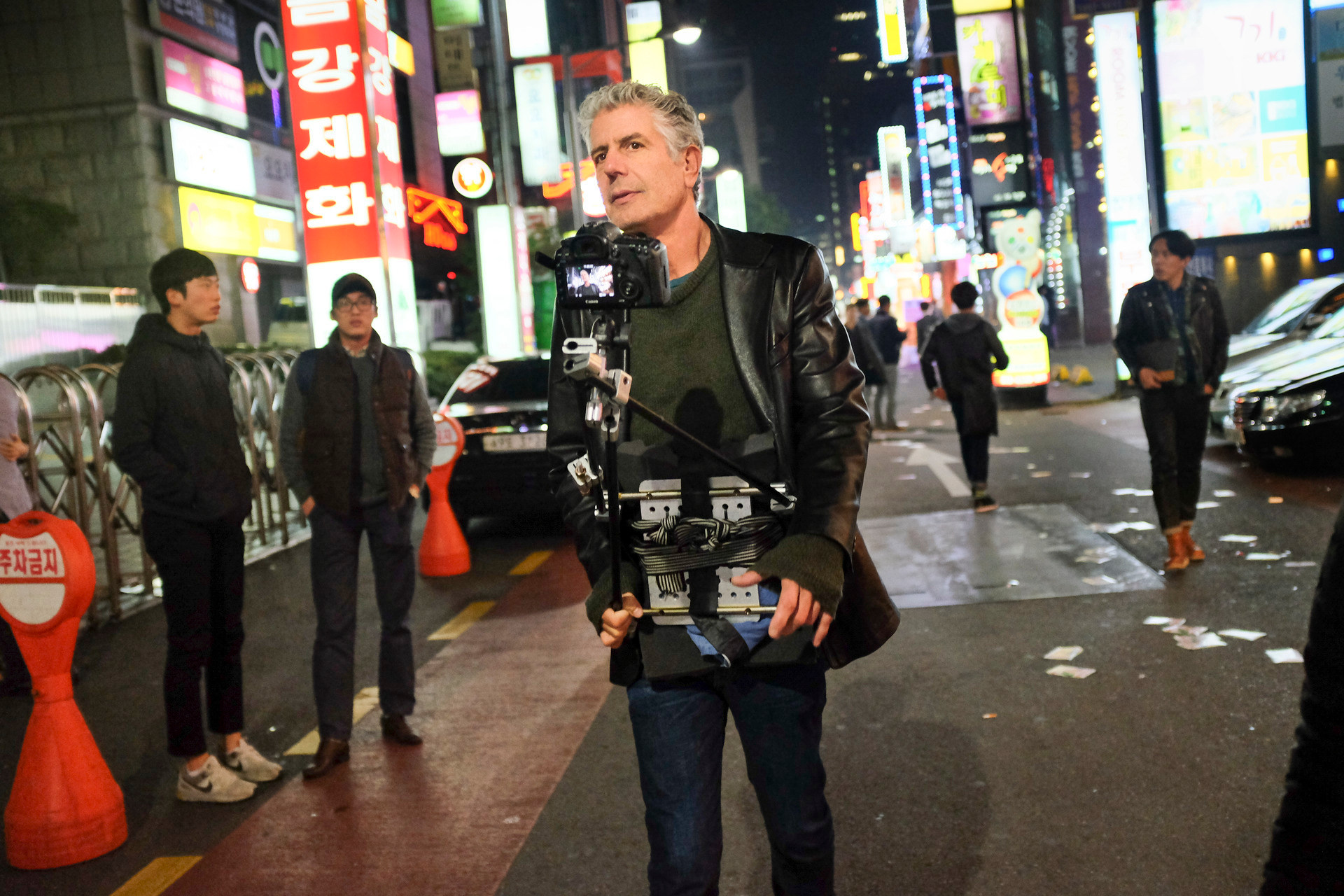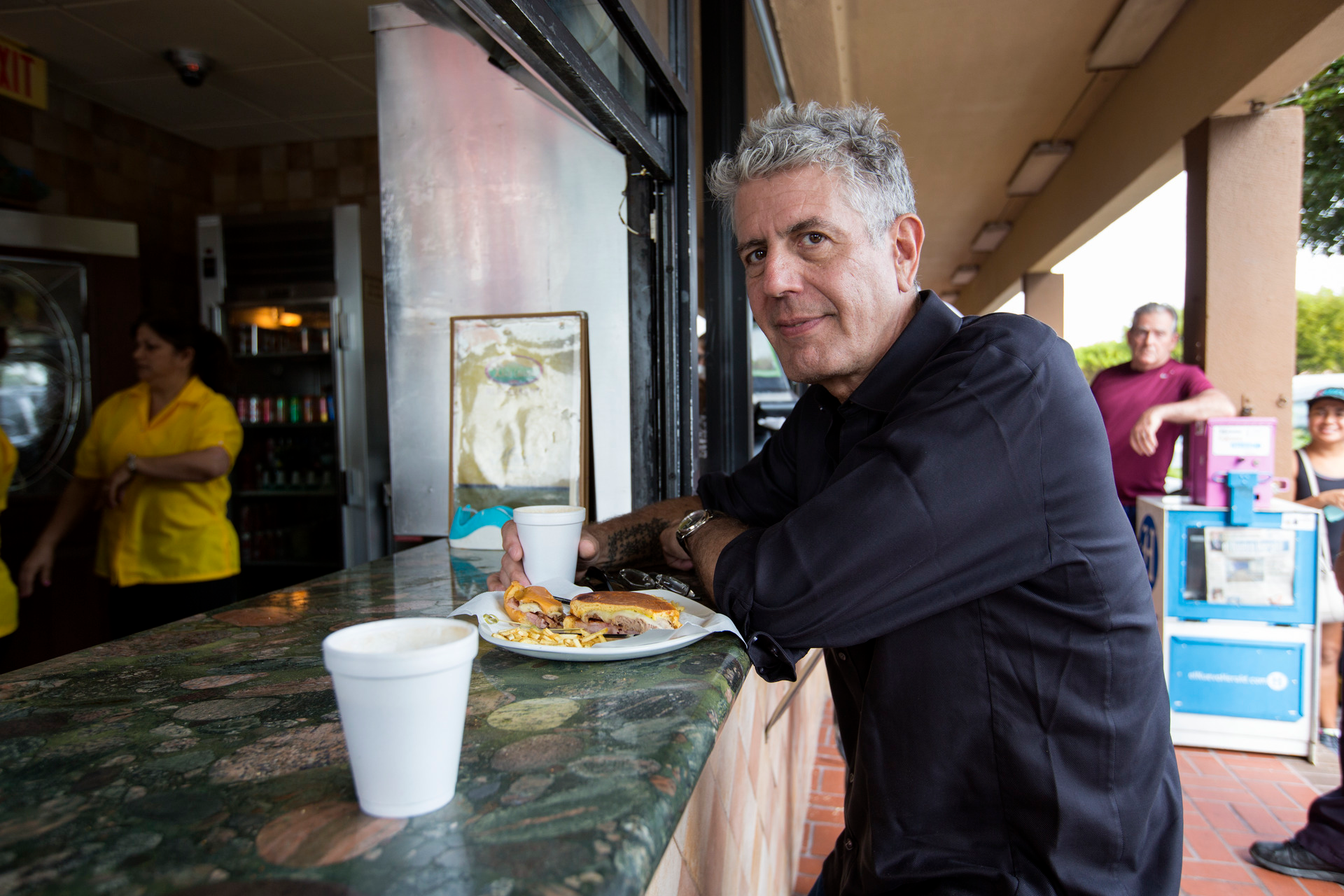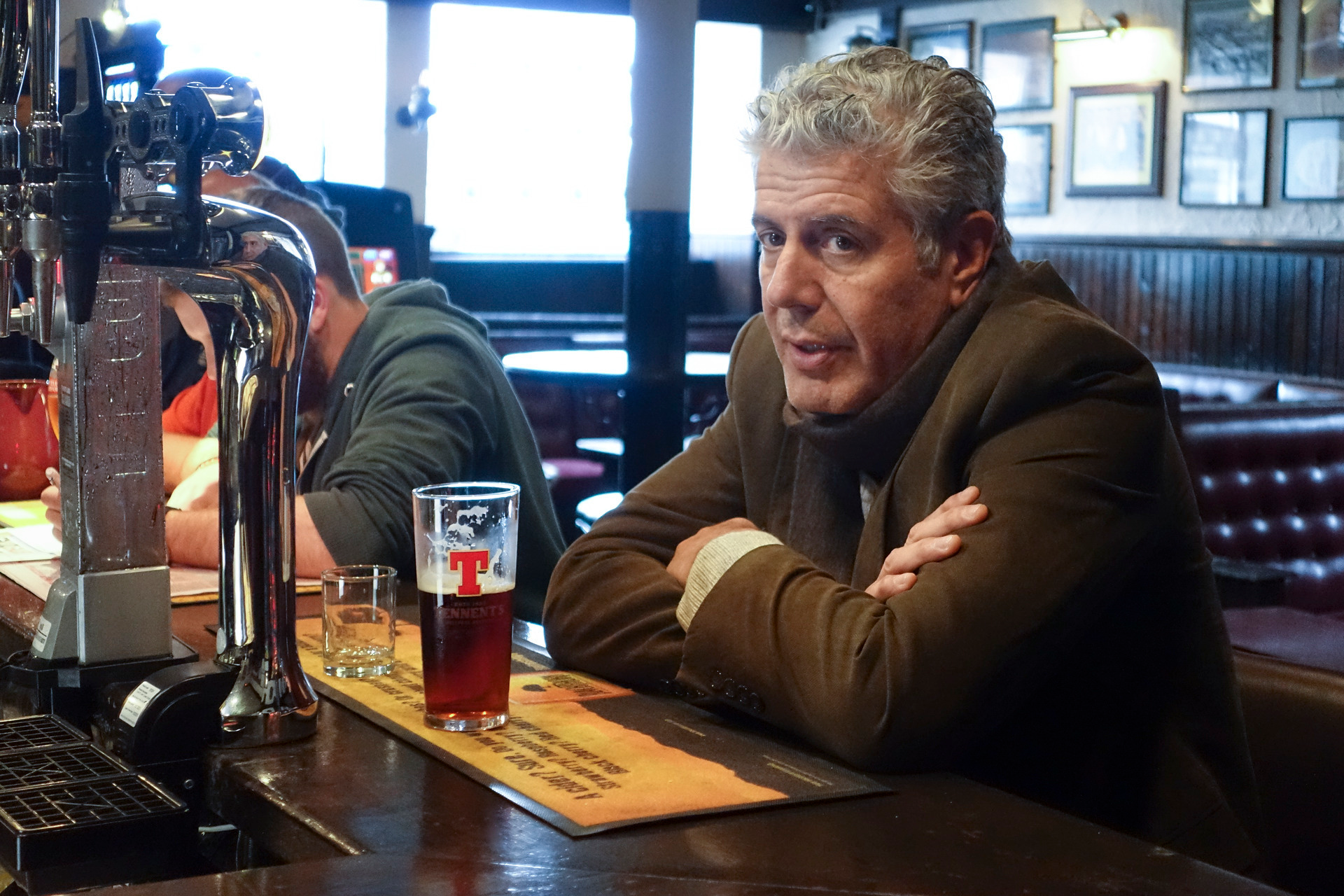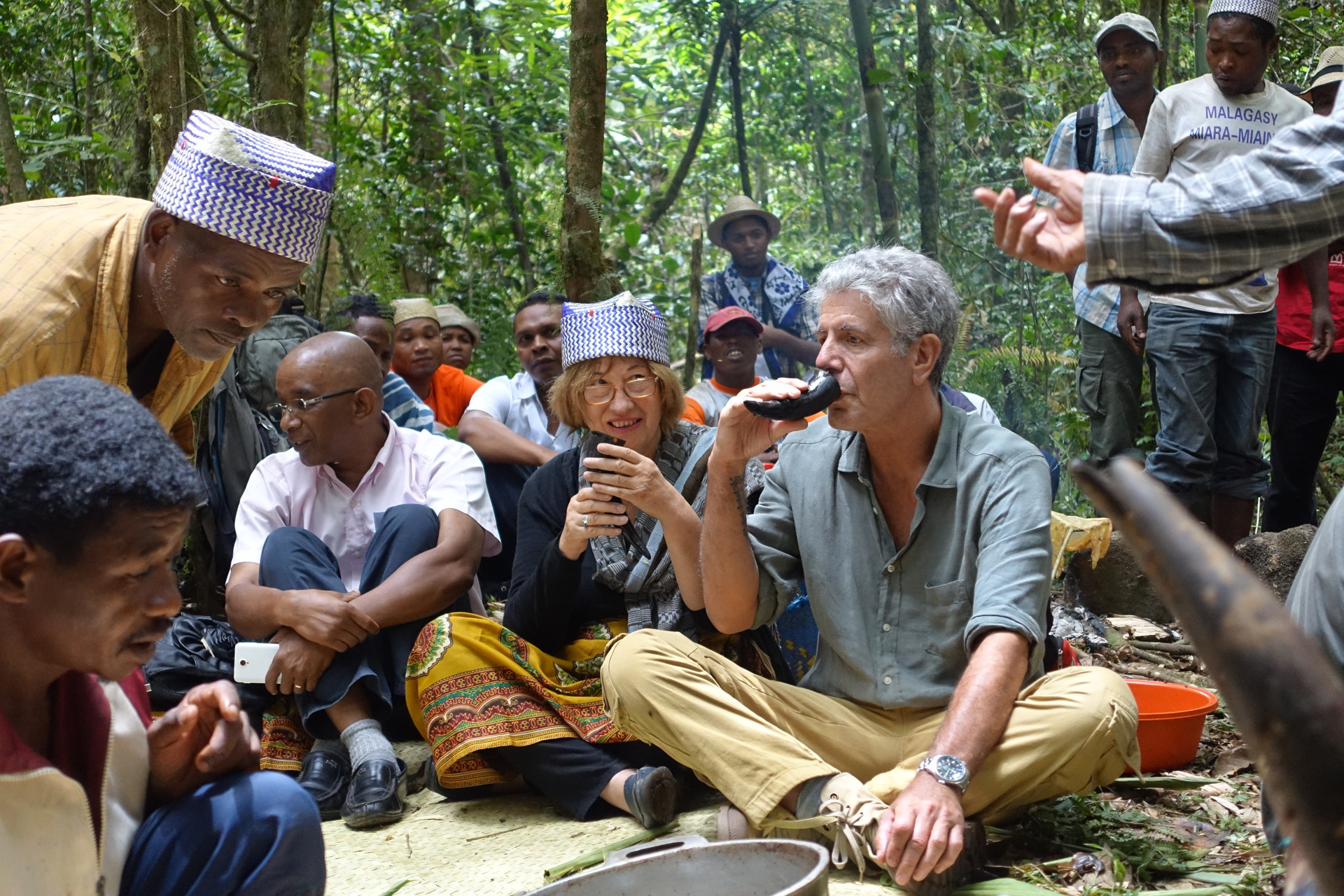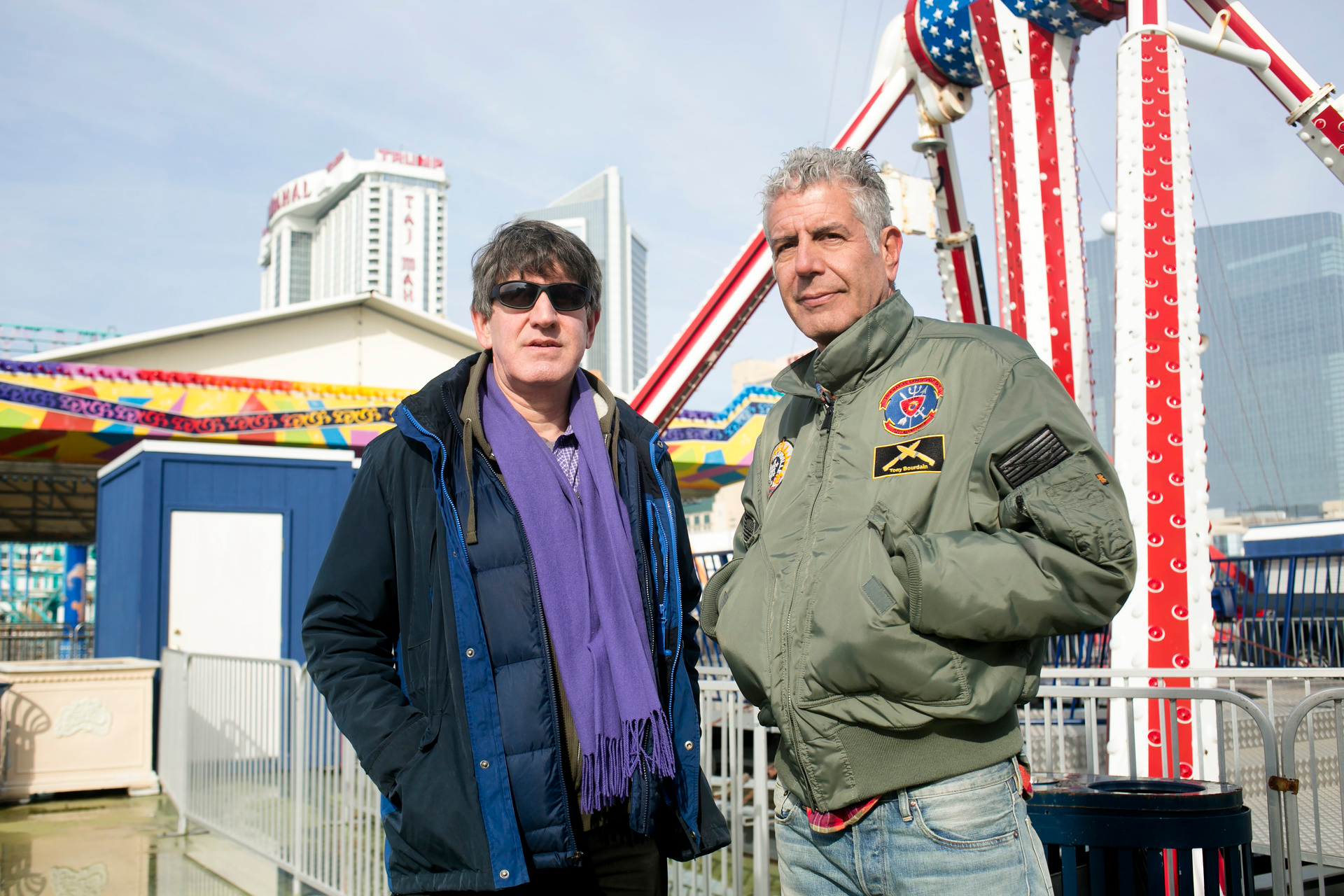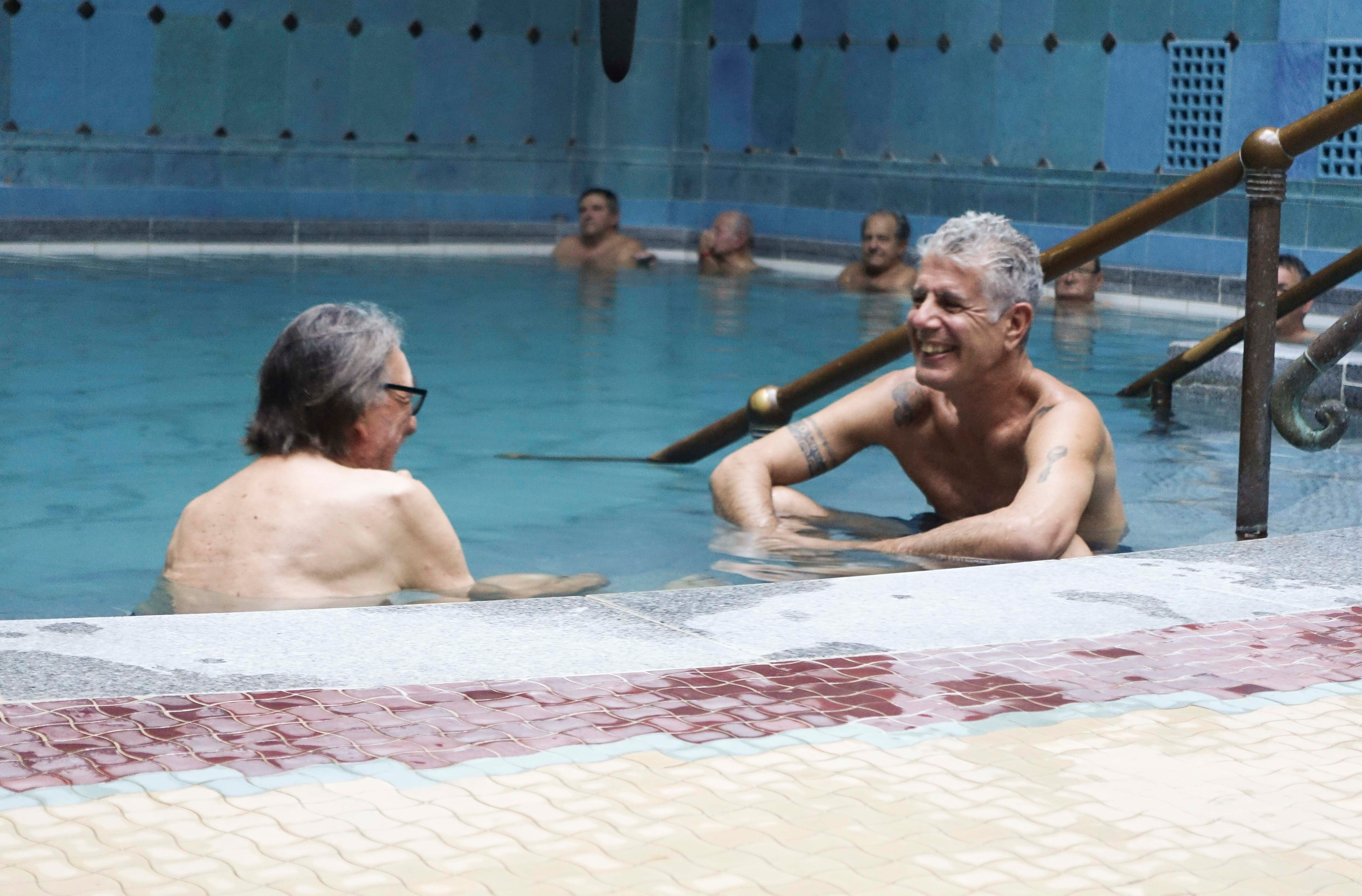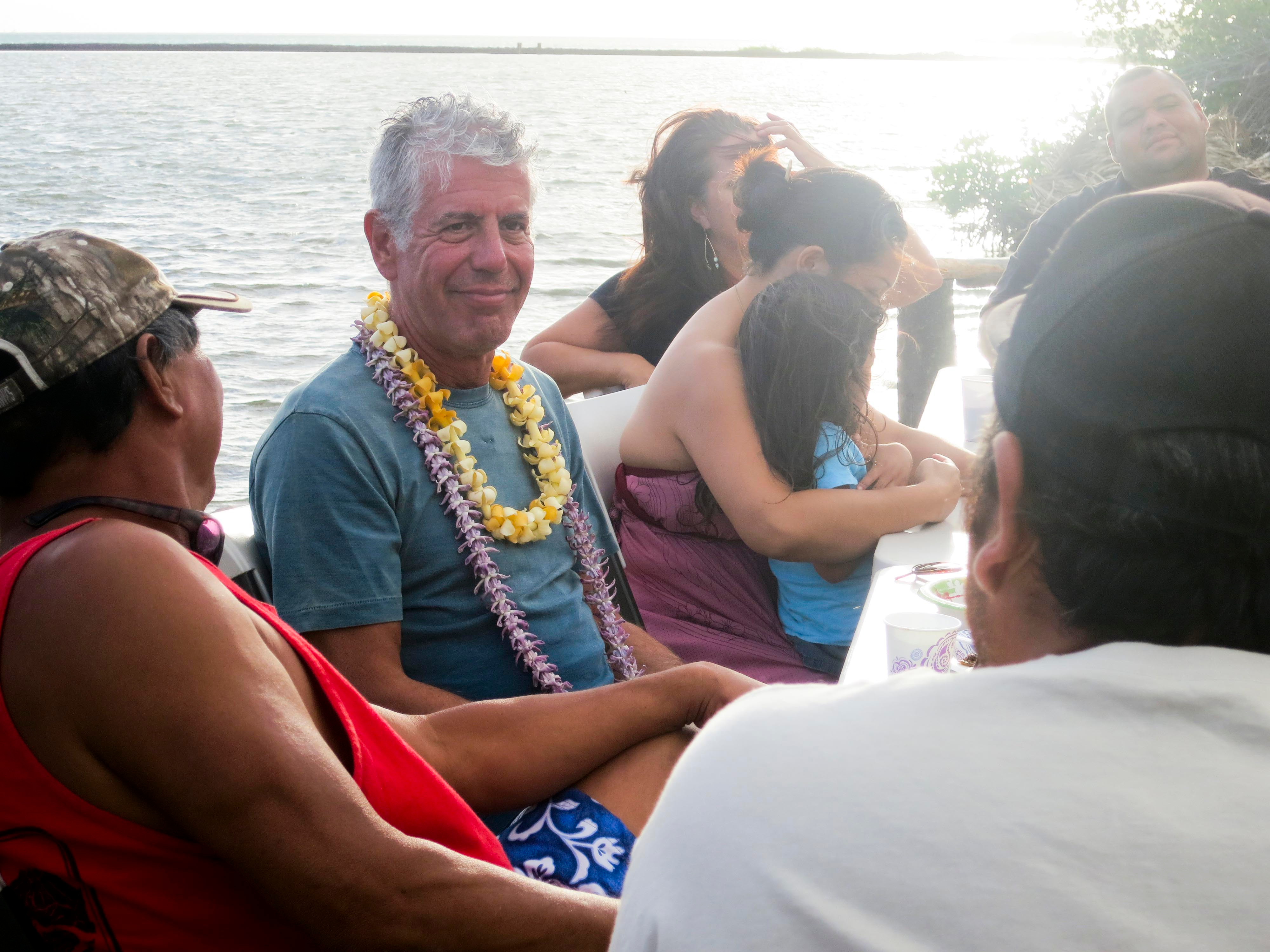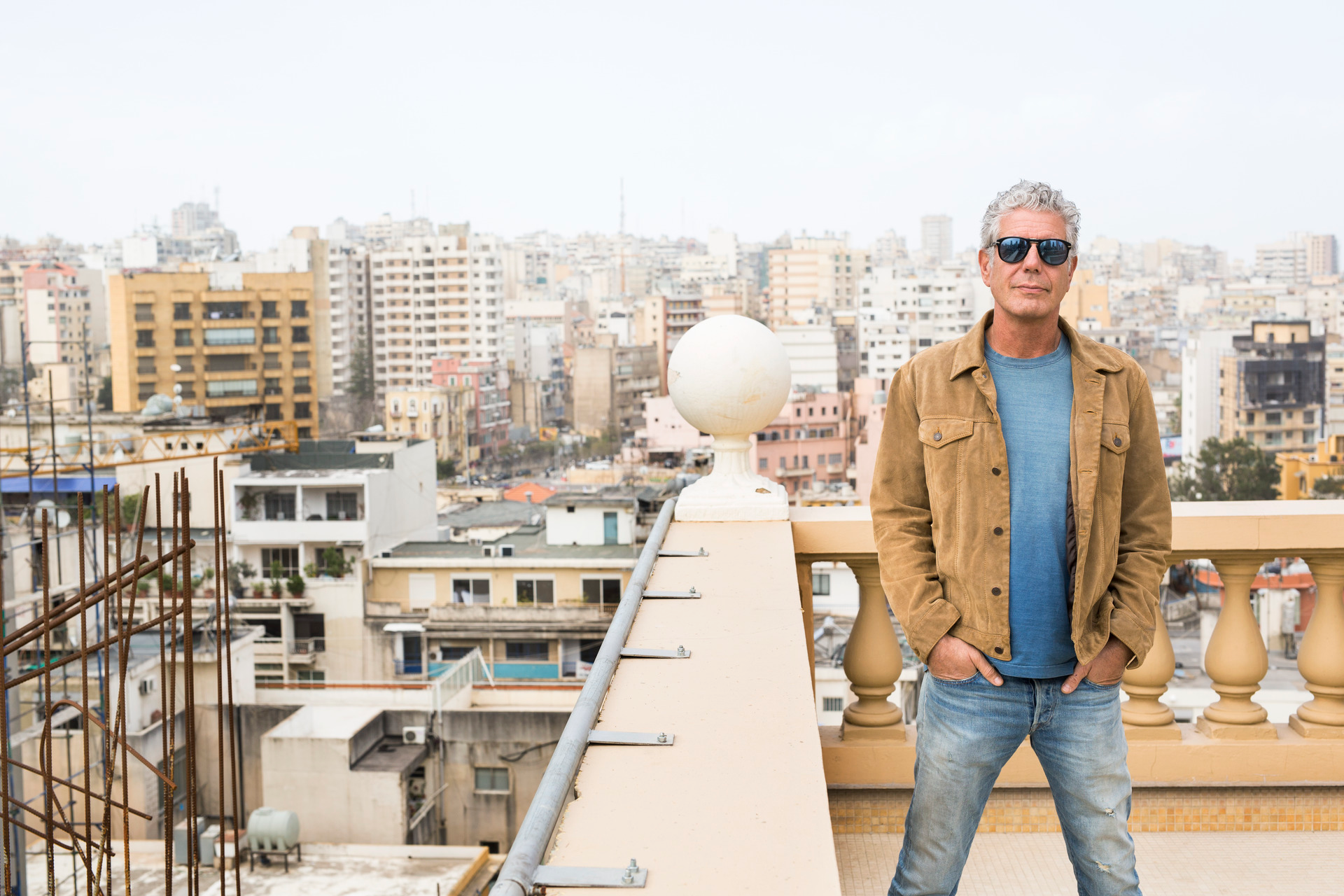Parts Unknown, Season 5: Always Meet Your Heroes
One of the great Parts Unknown lessons: If you let them, places—and people—can surprise you. In this fifth season, we learn that Iggy Pop lives in Miami now. Who knew?
Episode 1: Korea
The itinerary: "Korea" is a perfect example of not simply doing something cool for the sake of coolness, and instead waiting for the perfect opportunity. In his field notes for the episode, Bourdain writes that the show had long wanted to tell a story in reverse—to do what one might call the full Memento. Rather than layer such a concept on "The Bronx" or "Sicily," the team waited for the perfect story in the perfect place. The place is Seoul, a bustling city in a country that "seems to anticipate the future very well." The story is of an "older brother," taking one last shot of soju, weary and confused, trying to piece together the events of wild week, hidden somewhere behind the headache. The style is inspired by the video for the Queens Of The Stone Age song "Smooth Sailing," down to the tie wrapped around a sweaty forehead; there are moments, glimpsed in flashes, that grow gradually clearer. Technically impressive, thematically rich, and because it all fits together so well, not the least bit insufferable.
Looks delicious: A meal of seafood, some of it still squirming, shared with friend and producer Nari Kye, accompanied by many delicious pickled things.
Episode 2: Miami
The itinerary: There's much to appreciate about "Miami," which, like many of the episodes centered on American cities, seeks to both understand and look beyond general preconceptions and stereotypes of the place. That means checking some more-obvious boxes—beaches, nightclubs, some chat about cocaine and the recession—then going off in unanticipated directions, sometimes right as that box is being checked. In this case, the biggest unexpected turn is music. Bourdain talks about the "Miami sound" with Questlove (over an incredible meal), Uncle Luke (of 2 Live Crew), and Deep City Records founder Willie Clark, three thoughtful, almost sprawling conversations that cover much more than music. Then he does what it's said one should never do: He meets one of his heroes, eating a light meal with a local, James Osterberg, a guy from Muskegon, Michigan who's nowadays known as Iggy Pop. The episode ends with two grown-up punk kids standing on a beach, there to enjoy what so many head to the water to find: A little peace.
Looks delicious: As mentioned above, Bourdain's meal with Questlove at Yardbird is a thing of beauty. Still more appealing, however: the medianoche, a variant on the Cubano sandwich that uses a sweeter, eggier, challah-like bread.
Episode 3: Scotland
The itinerary: You canna quite anticipate the pleasure it gives to see a braw fella like Tony Bourdain, trussed up in a scarf wi' his collar turned up against the gray Glaswegian weather, walking the streets of a beautiful old city and looking perfectly at home. It's often hard to forget that the man isn't actually traveling solo—which is not to say that such ventures cannot be solitary—but this episode begins with scenes that look and feel as though an outlander walked off a plane and into a pub for a few pints alone and a little scattered chat—no cameras, no microphones, no companions beyond his thoughts and his knitwear. Perhaps it seems that way because he looks so comfortable, as though he belongs there. And that's true of whatever he does while here: Learning to defend himself in a knife-fight. Stalking a stag. Tossing back oysters and pints with equal eyes. Talking about humor, violence, and the future.
Looks delicious: We'll just quote Bourdain here: "There is no more unfairly reviled food on earth than haggis. Its ingredients are, in fact, no more unusual or bizarre or unappetizing than any hot dog you ever ate. How many anal glands are in a chicken nugget? I don't know, and I'm not suggesting there are anal glands in a chicken nugget, but would you be surprised if there were?"
Episode 4: Madagascar
The itinerary: The line between good and excellent mind-shifting art can be a narrow one. It's hard to get close, harder still to cross over. This solid episode of Parts Unknown, which sees Bourdain traveling with director Darren Aronofsky, doesn't sneak up on that line. It keeps its distance and then, without much warning, leaps over it in a last act that forces the viewer to question everything that came before in this episode, and in others.
Looks delicious: Recent vegetarian Aronofsky doesn't look sorry to miss out on the large lobster cooked over an open flame, but we sure are.
> Read more about "Madagascar" in our list of Parts Unknown's most essential episodes.
Episode 5: New Jersey
The itinerary: "I used to actually think that I could save all the kids," Tawanda Jones says of the young Camden students she works with. "I know that's not the case." It's not a despairing phrase—helping even one kid makes the effort worthwhile. It's also not the last time the diligent Parts Unknown viewer will hear such a sentence from a determined, far-from-hopeless woman. Bourdain goes to his home state in the dead of winter, determined to prove that even at its supposed ugliest, there's wonder to be found. He wants to share the wonder he sees and, perhaps more importantly, feels. It's perhaps no coincidence that Bourdain fills this episode with the words of poets (and no, we don't mean Springsteen), because the state seems to wring poetry forth from him as well. Poetry exists to help us see, think, and feel. It resonates with the world as we experience it. "New Jersey" echoes with many other episodes of Parts Unknown: ghost towns, nostalgia, brave people, changing cities, vanilla, mustard, ocean water. The pull of such things is strong.
Looks delicious: Bourdain must have known the reaction he'd get when he declared a New Jersey cheesesteak to be better than its brothers in Philly. He said it anyway, so he must believe it to be true.
Episode 6: Budapest
The itinerary: Bourdain visits Budapest for the first time to do the kind of thing one might dream of doing, had they a television show of their own: He speaks for a good long time with a legend in a field about which he is deeply nerdy. Groundbreaking cinematographer Vilmos Zsigmond, who won an Oscar for his work on Close Encounters Of The Third Kind, takes Bourdain to the mineral baths, to the place he and his father ate fish chowder when he was a child, to the movie house where he saw Chaplin mock Hitler. They talk about learning to capture images, about documenting atrocities, about survival. Parts Unknown sees its fair share of celebrities, but in nearly every case, the conversations that linger are those with people who dazzle Bourdain. Zsigmond died in 2016. How fortunate viewers are that this journey happened when it did.
Looks delicious: There's an incredible deli case at a butcher, and a piece of schnitzel you could wrap around the human head, but neither hold a candle to a dish comprised of chicken livers in bone marrow sauced, heaped atop a golden pancake.
Episode 7: Hawaii
The itinerary: One of the most fascinating modes of Parts Unknown is when the show takes you to a famous tourist destination and gently points your attention in a new direction. So it is with Hawaii. "Nowhere's paradise," writer Paul Theroux tells Bourdain. "Paradises don't exist. Paradise is kind of in your head." The Hawaii-centric episode of Parts Unknown sets out to demonstrate how much more there is to Hawaii than resorts and guided tours, but it doesn't totally accept the idea that paradise is a fiction. Instead, it shows us a complicated, flawed, unspeakably beautiful place. A place with pig roasts, fishing trips, laughing kids, and diving for whales. A more everyday kind of heaven. And to guide his attempt to understand all its fascinating layers, Bourdain begins with a simple question: Who is Hawaiian?
Looks delicious: The Hawaiian plate lunch gets a lot of love from Bourdain, but a feast at the home of legendary band manager Shep Gordon, complete with a pig so thoroughly slow-roasted it's easily dumped into a pot, steals the show.
Episode 8: Beirut
The itinerary: In 2006, Bourdan and the No Reservations crew journeyed to Beirut and fell in love. Within days, U.S. military forces transported them to the USS Nashville, then their only means of getting home. War had arrived. 10 years later, the show had changed, and so, more dramatically, has the city. This is a necessarily stark episode of Parts Unknown, the specters of war, death, and unimaginable suffering casting shadows over a startlingly beautiful city. The people Bourdain meets have backgrounds as different as their opinions on what needs to happen next. The episode unsettles. It provokes. But it also shows us a place calling out for you to visit. That's what Bourdain thinks, too: "You should go there," he writes. "It defies logic. It defies expectations. It is amazing. EVERYONE should visit."
Looks delicious: At communist-themed bar Abou Elie, Bourdain drinks a lot—but he also eats kibbeh nayyeh, an appetizing steak tartare-like dish made of raw lamb.
Programming note: This is one of those instances in which Bourdain's field notes are well worth your time—he goes into the nature of his first visit to Beirut, which involves a war breaking out.
